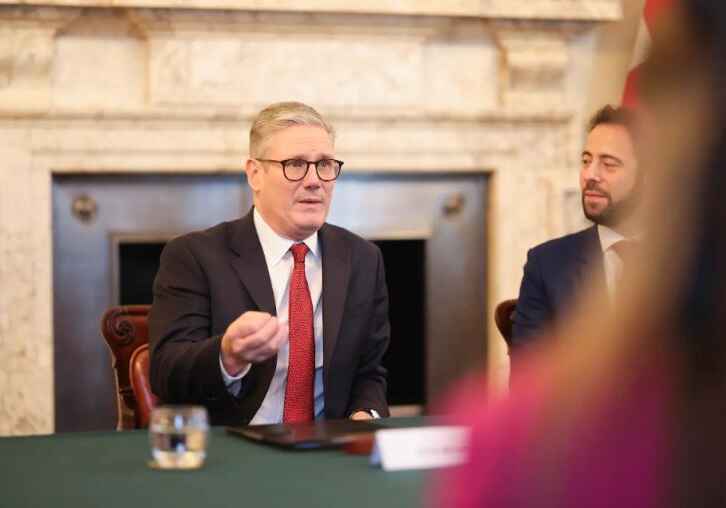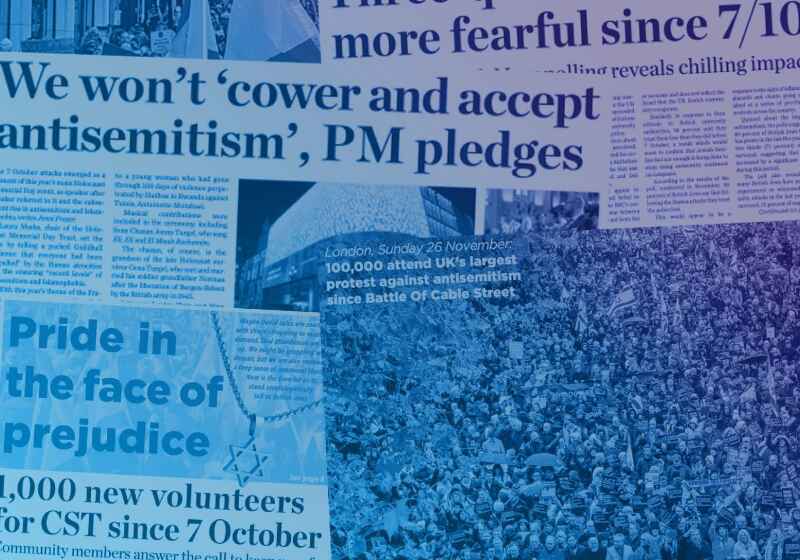CST Blog
Iranian Revolution: Lessons Learnt?
15 December 2010
A previously confidential Foreign and Commonwealth Office report (large pdf, here), officially released on 15 December by the FCO, suggests some foundational answers to the commonly asked questions regarding Britain's apparent tolerance and accommodation of Islamist groups of varying extremes throughout the 1990s. In other words, what is sometimes termed the "Londonistan" phenomenon of that time. (The report is 79 pages long and covers far more ground than merely these aspects covered below.)
It needs stressing in this context, that British tolerance of Islamist extremists has significantly waned since the '90s. The problem certainly persists, especially with Muslim Brotherhood type elements, but the recently elected Conservative-led government appears especially determined to address and tackle the general problem of Islamist influence and radicalisation, rather than simply its worst Al Qaeda-linked extremes.
In summary, the declassified FCO report suggests that groups opposing friendly autocratic regimes should be held close, in order to maintain relations with the country should it undergo revolution. Furthermore, such contact should be constant, so as not to suddenly alarm friendly autocrats when it is initiated. Friendly autocrats should be told that the contact is in their best interest, as it helps provide early warnings of opposition intent.
The report was commissioned in 1979 and is entitled, British Policy on Iran 1974-1978. The FCO website's introduction states
The Islamic Revolution in Iran represented a seismic shift in the internal and geopolitical orientation of a formerly close ally of the United Kingdom.
This document, now released for the first time, was commissioned in 1979 by the then Foreign Secretary, the Rt Hon David (now Lord) Owen, in order to enable a detailed examination of the context of the events leading to the Revolution, and for the FCO to identify any lessons that might be learned from the UKs reactions to, and analysis of, the events concerned.
The intention, as mentioned by the then Permanent Under-Secretary in his foreword, was not to apportion blame for the fact that the FCO, in common with others, failed to predict the Islamic Revolution. Rather, the intention was to examine where, if anywhere, we had gone wrong and how we could do better in the future. In this context Chapter XI, Conclusion: Lessons for the FCO, is of particular interest.
As a whole, this document shows the value of analysis and historical perspective in formulating policy not just with regard to the Islamic Republic of Iran, but to other countries and regions which remain of vital interest to the UK.
It is important to bear in mind that this is a historical document and does not necessarily reflect the views of the current UK government. It has been released for publication on the web following the FCOs standard clearance procedures.
The report analyses where Britain went wrong in its dealings with the Shah and in not dealing with his opponents. The immediate result of these failures was that after the revolution, Britain lost significant commercial and diplomatic interests in this vitally important region.
Was there, however, an even longer term domestic outcome; namely, how did Britain's Iranian experience then influence its 1990's accommodation of the full range of Islamists - from terrorists to dissident political refugees? With Britain now seemingly being a net exporter of suicide bombers, what roles could the FCO's 30 year old Iranian lessons have inadvertently played in our current predicament?
There should be no doubting Britain's essential willingness in the post 9/11 world to confront and defeat what now passes for Al Qaeda and its support network, but back in the 1980s and 1990s this was demonstrably not the case. Covert (and not so covert) 1980s British and American backing for anti-Soviet mujahideen meant that the kernel of what became Al Qaeda was fully backed, both physically and morally. Legal and reputational issues also played their part, such as the lengthy and embarassing failure in the courts to deport anti-Saudi activist, Mohamed al-Massari, who even appeared in 1996 as a guest on the satirical BBC quiz show hit, "Have I Got News For You". Ultimately, it took 9/11 for this situation to turn around, but by then the fundamental damage had been done; as cruelly manifest by the 7th July 2005 London bombings.
Still, why did Britain not take this as seriously as, in retrospect, it clearly should have done? For example, why, when Algerian terrorists were bombing France, was London hosting a linked propaganda mouthpiece, Al Ansar (and likely much more besides that). This pro-Algerian Jihadi network, centred upon the then-notorious Finsbury Park Mosque, unsurprisingly played its part in the radicalisation of British Muslims; as did others that crossed the same orbit, such as the early and mid 1990s version of Hizb ut Tahrir (prior to its subsequent splits).
It is possible that the Iran post-mortem report gathered dust and influenced nobody, but read its conclusions (as the FCO recommend above) and you may well be struck by similarities between them and aspects of FCO and Home Office behaviour in the 1990s (and partly since), towards Islamist extremists, both domestically and overseas. You may also be struck by lessons that appear not to have been learnt. Errors that appear to be institutionalised and are essentially due to wishful thinking; particularly "the three principal conclusions" regarding "Policy" with which the report ends (page 79):
(a) hopes and expectations
...It is only too easy to allow hopes for the future to affect perceptions of it, with the result that analysis is not wholly objective. In the case of political risk countries it is particularly important that because the FCO fervently hopes that there will not be a threat to British interests it is not reluctant to see signs of trouble when they emerge.
(b) opposition to the government in power
The experience of Iran suggests that in two respects it was a mistake to allow contact with opposition figures to lapse. This deprived the Embassy of sources of information...It also meant...[if Britain] wished in certain circumstances to provide a transition of power from the Shah to an elected government they were handicapped...This handicap could have been avoided.
(c) autocrats
...flattery often appeared to be the best weapon to deploy and avoid losing his [the Shah's] favour...It tended to be assumed that he was ready and willing to damage Western interests if offended, whereas in practice he rarely behaved in this way. The experience of Iran suggests that in dealing with an autocratic government of broadly pro Western alignment the West will secure her interests better with an honest and frank relationship with that government maintained over a period of years.
The preceding chapter (page 66-76) is called "Could the losses have been avoided?". This also strongly suggests subsequent lessons and failures, including
In the first place it now seems questionable whether it was right in the early 1960's to decide that contact with opponents of the regime should be avoided...After a number of years it became clear to the [Tehran] Embassy that if they wished to renew [opposition] contact...they would risk incurring the Shah's odium...But if contacts had never been allowed to lapse in the first place it would have been more difficult for the Shah to complain. A feasible alternative policy would have been to tell the Shah after 1963 that the British were pleased with the success of the White Revolution, that they supported him wholeheartedly, and that they would continue to keep in touch with his political opponents in case of a renewed threat to him. this would have been consistent with past British policy and the Shah would have had no clear cut ground for political complaint...
Finally, from this one officially declassified FCO report, to one of the hundreds of thousands of unofficially sanctioned Wikileaks reports. In this case, written by recently deceased senior US diplomat, Richard Holbrooke after a meeting with David Cameron MP, prior to his becoming Prime Minister
'We let in some crazies,' Cameron said, 'and didn't wake up soon enough.'"


